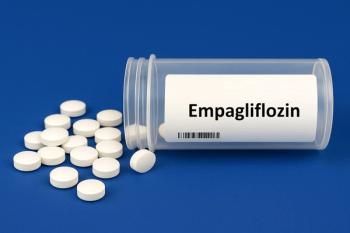
Digestive Health Treatments Near FDA Submission
Successful clinical trials for digestive health treatments may soon yield approvals.
Three investigational medications for Crohn’s disease (CD) and ulcerative colitis (UC) recently showed promising results in clinical trials. The top promising treatments that will be submitted to the FDA for approval include: PRA023, Rinvoq (upadacitinib), and mirikizumab.
1.Prometheus Biosciences’ PRA023 demonstrated “strong efficacy and favorable safety results” in 2 studies, the company said in a news release.1
Based on the results from its ARTEMIS-UC Phase 2 and APOLLO-CD Phase 2a studies, Prometheus will advance PRA023 into Phase 3 studies for UC and CD in 2023.
In its Phase 2 ARTEMIS-UC clinical trial with patients with moderate-to-severely active UC who have failed conventional or advanced therapy, 26.5% of patients on PRA023 reached the primary endpoint of clinical remission, compared to 1.5% on placebo, for a placebo-adjusted clinical remission rate of 25% on the primary endpoint, Prometheus said.
Nearly 37% of patients on PRA023 reached the secondary endpoint of endoscopic improvement compared to 6% on placebo, for a placebo-adjusted endoscopic improvement rate of 30.8% on the secondary endpoint.
Prometheus’ Phase 2a APOLLO-CD involving patients with moderate-to-severely active CD with endoscopically active disease who had failed conventional or biologic therapy, 49.1% achieved clinical remission compared to a 16% prespecified historical placebo rate. In addition, 26% of patients taking PRA023 achieved endoscopic response.
2. Rinvoq (upadacitinib, AbbVie) was effective in treating CD and UC, according to recent research.
AbbVie executives presented the study results at the American College of Gastroenterology (ACG)’s Annual Scientific Meeting, held October 21-26 in Charlotte, North Carolina, and virtually.
More CD patients treated with either dose of upadacitinib (15 mg or 30 mg once daily) achieved the co-primary endpoints of endoscopic response and clinical remission, as well as the secondary endpoint of endoscopic remission, at 1 year compared to placebo in AbbVie’s U-ENDURE Phase 3 maintenance study.
The study evaluated upadacitinib in adult patients with moderate-to-severe CD who had an inadequate response or were intolerant to a conventional or biologic therapy, AbbVie said in a news release.2
Nearly half (49%) of patients treated with a 12-week induction regimen of upadacitinib 45 mg daily achieved clinical remission per at week 12 compared to placebo (29%). In addition, a significant 46% of patients treated with upadacitinib 45 mg achieved endoscopic response at week 12 compared to the placebo group (12%).
Notably, steroid-free clinical remission was achieved at week 52 among all patients and those on steroids at entry in maintenance, Edward V. Loftus, Jr., MD, gastroenterologist at Mayo Clinic College of Medicine and Science, told ACG attendees.3
3. In the first quarter of 2022, Eli Lilly submitted a Biologics License Application to the FDA for mirikizumab to treat UC. The pharma maker said in a news release4 that it expects a regulatory decision sometime in 2023. “If approved, mirikizumab would become the first and only anti-IL23p19 treatment for people with UC,” Lilly said.
Lilly’s Phase 3 LUCENT-2 study found that UC patients who responded to mirikizumab at 12 weeks achieved and maintained statistically superior and clinically meaningful improvements at 1 year compared to placebo across the primary endpoint of clinical remission and all key secondary endpoints, including bowel urgency severity.
Among patients who had responded to 12-week induction treatment with mirikizumab, 49.9% of patients receiving mirikizumab maintenance treatment achieved clinical remission at 1 year compared to 25.1% of patients on placebo. Nearly two-thirds of patients receiving mirikizumab who achieved clinical remission at 12 weeks maintained clinical remission at 1 year compared to 37% of patients on placebo.
Nearly all patients receiving mirikizumab who achieved clinical remission at 1 year were not taking corticosteroids for at least 3 months prior to the end of maintenance treatment, Lilly noted.
References
- Prometheus Biosciences announces positive results for PRA023 in both ARTEMIS-UC Phase 2 and APOLLO-CD Phase 2a studies enabling pathway to both first-in-class and best-in-class anti-TL1A mAb. News release. Prometheus Biosciences. December 7, 2022. Accessed December 14, 2022.
https://ir.prometheusbiosciences.com/news-releases/news-release-details/prometheus-biosciences-announces-positive-results-pra023-both - Upadacitinib (RINVOQ) met the primary and all secondary endpoints in the 52-Week phase 3 maintenance study in ulcerative colitis patients. News release. AbbVie. May 11, 2022. Accessed November 14, 2022.
https://news.abbvie.com/news/press-releases/upadacitinib-rinvoq-achieved-clinical-remission-and-endoscopic-response-at-one-year-in-phase-3-maintenance-study-in-patients-with-crohns-disease.htm - Loftus, E. Efficacy and safety of upadacitinib maintenance therapy in patients with moderately to severely active Crohn’s Disease: Results from a randomized phase 3 U-ENDURE maintenance study. Poster Presentation, ORAL 44. American College of Gastroenterolgy’s Annual Scientific Meeting. October 21-26, 2022. Charlotte, NC.
- Fifty percent of patients with ulcerative colitis treated with mirikizumab achieved clinical remission at one year in Lilly's pivotal phase 3 study. News release. Eli Lilly. May 24, 2022. Accessed December 14, 2022.
https://investor.lilly.com/news-releases/news-release-details/fifty-percent-patients-ulcerative-colitis-treated-mirikizumab
Newsletter
Pharmacy practice is always changing. Stay ahead of the curve with the Drug Topics newsletter and get the latest drug information, industry trends, and patient care tips.























